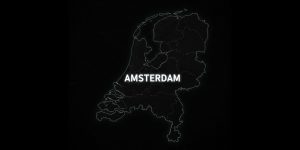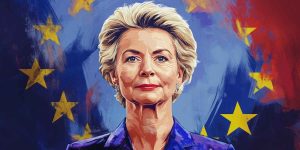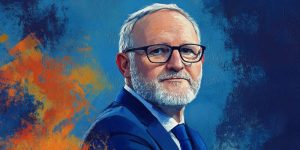BlackRock: The World’s Most Powerful

BlackRock Inc. has quietly become one of the most powerful and influential financial entities in the world. With assets under management (AUM) exceeding $10 trillion at its peak, BlackRock wields immense influence over global markets, corporations, and even governments. Despite its dominance, BlackRock operates with limited oversight and accountability, raising concerns about monopolistic behavior and conflicts of interest. The firm’s opaque structure, close ties to political institutions, and significant control over the global economy position it as a dangerous force that challenges the principles of free-market competition and democratic governance.
What makes BlackRock’s dominance even more concerning is the scale of its influence and the lack of effective oversight. Through its vast holdings in major corporations, BlackRock shapes corporate strategies, political decisions, and even global financial stability. This level of concentrated power effectively creates a shadow government where unelected financial executives hold more influence over global affairs than elected political leaders. The question is not whether BlackRock is too powerful — it is whether BlackRock’s dominance has already crossed the line into dangerous monopoly territory.
The rise of BlackRock
Origins and expansion
BlackRock was founded in 1988 by Larry Fink and a group of partners, including Susan Wagner, Robert Kapito, and Ralph Schlosstein, with the goal of managing risk through innovative financial products. Its early success came from its pioneering work in mortgage-backed securities, which laid the foundation for its rapid growth. The firm’s strategy was based on the idea that advanced risk management through data and technology would give it a competitive edge over traditional asset managers (BlackRock’s rise to dominance, The Financial Times).
However, it was the 2008 financial crisis that cemented BlackRock’s dominance. The U.S. government enlisted BlackRock to manage toxic assets from collapsed financial institutions such as Bear Stearns and AIG, giving the firm access to privileged market data and insider knowledge. This allowed BlackRock to expand its reach into global markets, with little competition capable of challenging its newfound scale and influence (The trillion-dollar empire, Bloomberg).
Over the next decade, BlackRock’s influence expanded through acquisitions and the rapid growth of its iShares exchange-traded funds (ETFs), which allowed the firm to dominate the passive investment market. BlackRock’s iShares platform became the largest ETF provider in the world, capturing more than 30% of the global ETF market. As of 2025, BlackRock manages over $10 trillion in assets — making it larger than the GDP of every country in the world except for the United States and China (The trillion-dollar empire, Bloomberg).
Influence over governments and central banks
BlackRock’s involvement in the 2008 bailout established a dangerous precedent of direct involvement with governments. The firm played a key advisory role in the European debt crisis and was consulted by the U.S. Federal Reserve during the COVID-19 pandemic to manage bond-buying programs. In 2020, BlackRock was hired by the Federal Reserve to execute the central bank’s corporate bond-buying program, essentially placing BlackRock in the position of managing U.S. monetary policy decisions that directly benefited its own assets (How BlackRock took over the financial world, The New York Times).
In Europe, BlackRock has also played a central role in shaping economic policy. The European Central Bank (ECB) consulted BlackRock in 2016 to design its corporate bond-buying program, raising serious concerns about conflicts of interest given that BlackRock held stakes in many of the companies benefiting from the policy (BlackRock’s quiet dominance in Europe, Reuters). The close relationship between BlackRock and central banks raises serious concerns about conflicts of interest, as the firm profits from the very policies it helps shape.
Ownership and control
Who owns BlackRock?
Despite its global influence, BlackRock’s ownership structure is highly concentrated and opaque. The largest shareholders of BlackRock are Vanguard and State Street — two other financial behemoths that together with BlackRock form a triopoly controlling over $20 trillion in assets (The Wall Street giants, The Wall Street Journal). In a circular ownership pattern, BlackRock itself owns significant stakes in both Vanguard and State Street, raising concerns about collusion and the erosion of market competition.
This circular ownership structure creates a dangerous feedback loop where the three largest asset managers in the world collectively control enough voting power to influence the strategic direction of most major corporations and markets. According to a 2022 analysis, BlackRock, Vanguard, and State Street combined controlled over 20% of voting power at the average S&P 500 company (The BlackRock-Vanguard-State Street triangle, Financial Times).
Larry Fink, BlackRock’s CEO, holds significant personal power within the company and has amassed a fortune exceeding $1 billion through compensation packages tied to the firm’s market performance (Larry Fink’s empire, Forbes).
Influence over global corporations
Through its ETFs and other investment products, BlackRock holds significant stakes in nearly every major publicly traded company. BlackRock is the largest shareholder or holds a significant stake in the following corporations:
- Apple – BlackRock owns approximately 7% of Apple’s total shares.
- Microsoft – BlackRock holds around 7% of Microsoft.
- Amazon – BlackRock owns over 5% of Amazon’s stock.
- Alphabet (Google) – BlackRock holds about 6% of Alphabet’s shares.
- Meta (Facebook) – BlackRock holds approximately 5% of Meta’s shares.
- Tesla – BlackRock holds about 5% of Tesla’s stock.
- ExxonMobil – BlackRock holds over 6% of ExxonMobil.
- Chevron – BlackRock holds over 6% of Chevron.
- Johnson & Johnson – BlackRock holds over 6% of Johnson & Johnson.
This level of ownership gives BlackRock enormous voting power at shareholder meetings, allowing it to dictate corporate strategy and push for policies that align with its broader financial interests — often at the expense of shareholders and consumers (BlackRock’s grip on the market, Reuters).
Political influence and conflicts of interest
BlackRock’s deep integration into government and policy-making institutions creates systemic conflicts of interest. The firm has hired former government officials to strengthen its lobbying capabilities, while former BlackRock executives have been appointed to influential government positions.
Brian Deese, a former BlackRock executive, served as President Biden’s top economic advisor. Adewale Adeyemo, another former BlackRock official, served as Deputy Secretary of the U.S. Treasury. In Europe, BlackRock’s influence extends to the highest levels of financial regulation, with former ECB officials taking advisory roles at BlackRock (The BlackRock-government pipeline, The Washington Post).
Monopolistic behavior
Violation of antitrust principles
BlackRock’s dominance in asset management and its control over corporate governance place it in direct violation of basic antitrust principles. In theory, antitrust laws are designed to prevent any single entity from controlling a disproportionate share of the market. However, BlackRock’s cross-ownership of major corporations and its influence over market regulations have allowed it to sidestep these legal frameworks (How BlackRock evades antitrust laws, The Antitrust Paradox).
A study from 2018 found that common ownership by BlackRock and Vanguard in competing firms has reduced competition and increased consumer prices in sectors such as airlines, pharmaceuticals, and telecommunications (Common ownership and competition, Journal of Finance).
Regulatory capture
BlackRock has also engaged in aggressive lobbying to protect its market dominance. In 2020 alone, the firm spent over $20 million on lobbying efforts in the United States, targeting financial regulations and tax policies (BlackRock’s influence in Washington, Politico).
Conclusion
BlackRock’s unprecedented influence over global markets, corporations, and governments represents a dangerous consolidation of power. Without meaningful regulatory oversight and antitrust action, BlackRock’s dominance will continue to distort market outcomes, concentrate wealth, and undermine democratic governance. Its rise is a stark reminder of the dangers posed by unchecked financial power — and the urgent need for reform.


















